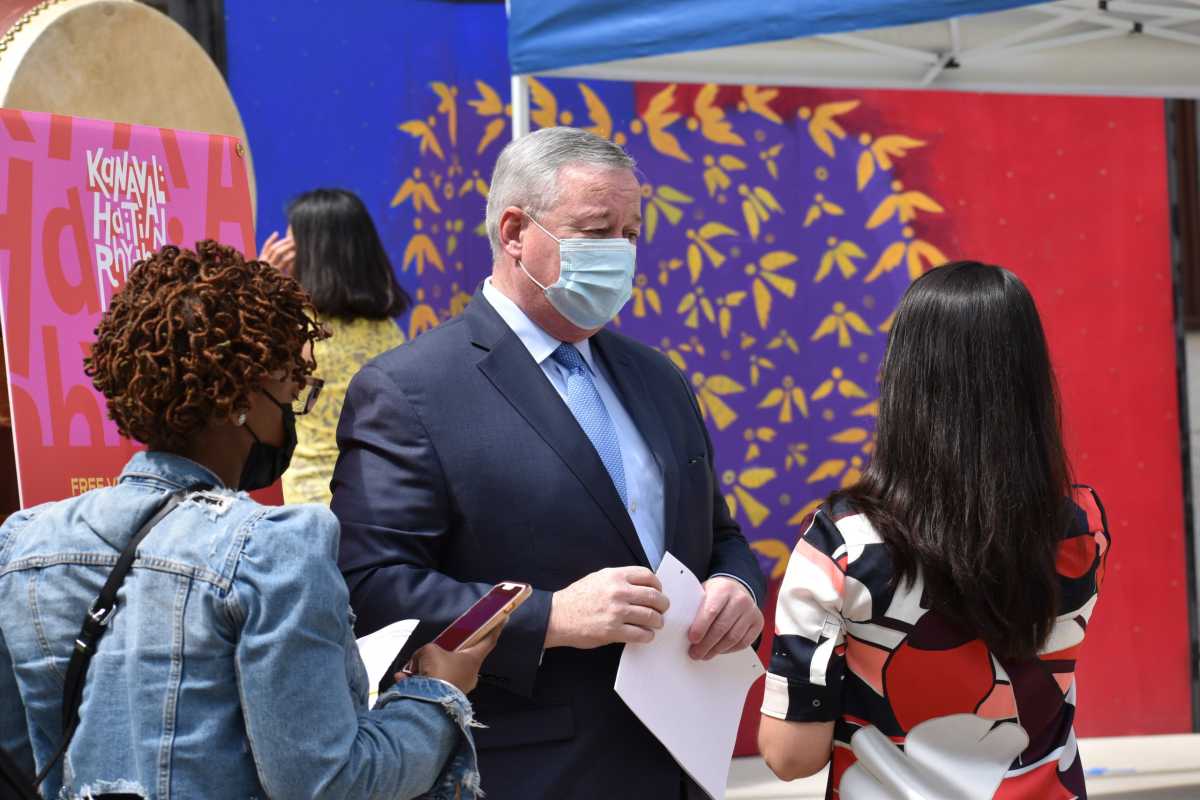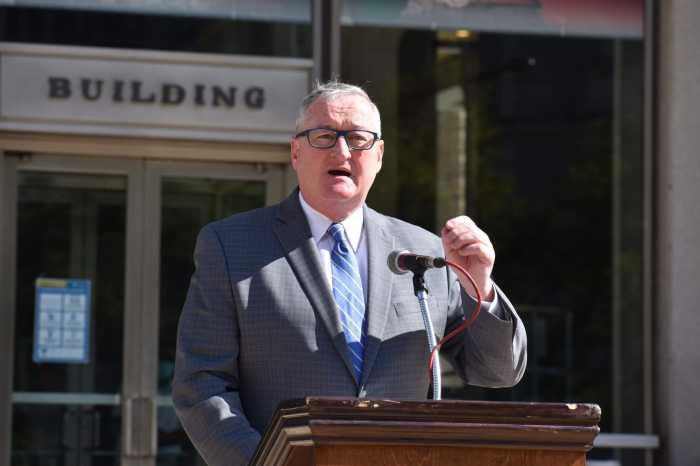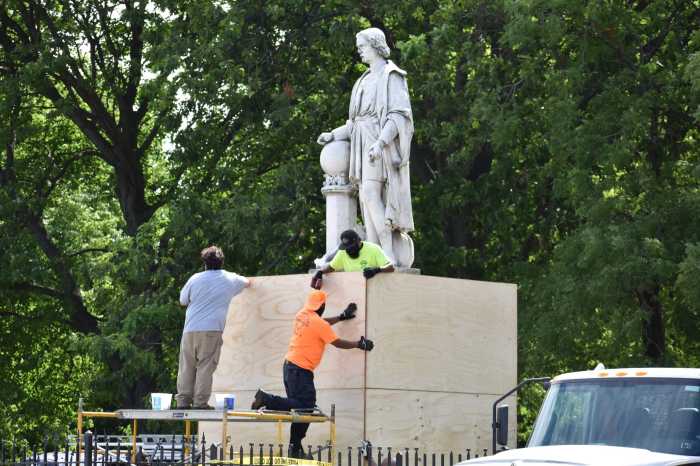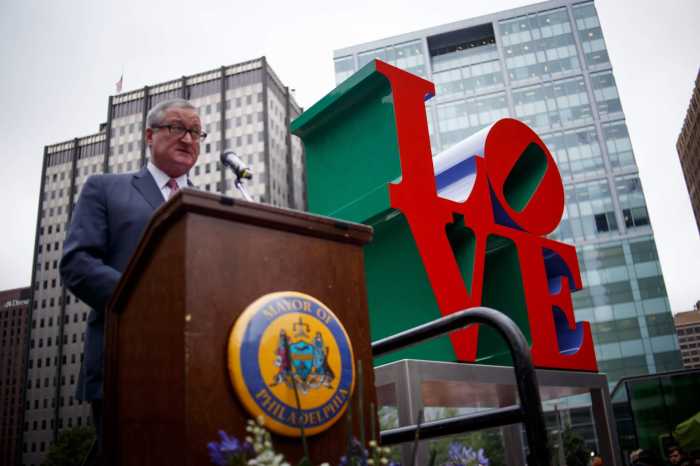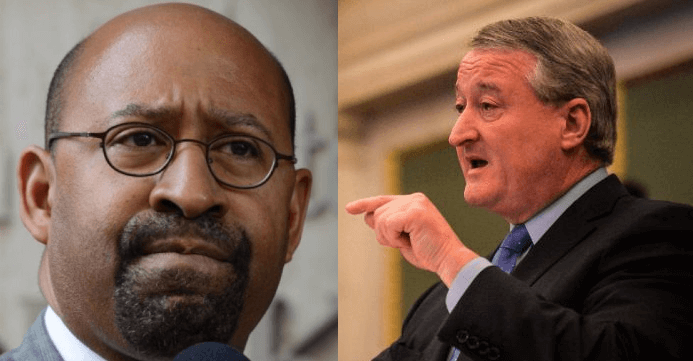Anti-violence advocates, progressive activists and urbanist groups are pressuring Mayor Jim Kenney and City Council to drop proposed tax cuts in favor of increased spending on community services and programs.
During a four-hour virtual budget hearing Tuesday, people lined up to oppose the reductions, particularly a plan to lower the parking tax from 25% to 17%.
The levy — which was previously 22.5% — was bumped up last year, as officials scrambled to close a massive, pandemic-related fiscal gap.
As part of that budget deal, there was a clause stipulating that the rate would revert back to 22.5% for the 2022 fiscal year, which begins July 1, and Council also approved a plan to study the possibility of moving it down to 17%.
Councilwoman Cherelle Parker, who has been pushing for the reduction, has said she believes it will incentivize travel to Philadelphia and allow garages to hire more workers or boost the pay of existing employees.
“This would essentially be a check straight into the pockets of the private parking sector and a subsidy for out-of-town commuters driving into Center City,” said Benjamin She, of 5th Square, a political action committee focusing on urban issues, at Tuesday’s hearing.
“There is no binding guarantee whatsoever… that any parking worker would see an immediate increase in wages and benefits as a result of parking lot owners having received this tax break,” he added.
Moving the rate from 22.5% to 17% would cost the city $90 million in tax revenue over five years, which is one of the main reasons Mayor Jim Kenney’s administration opposes the measure.
Discussions over the tax come amid a push to devote $100 million to non-police anti-violence initiatives, an effort supported by 13 Council members.
Other proposals targeted by activists are Kenney’s planned reductions to the business income and receipts tax and the wage tax, especially the part of that levy imposed on people who work in Philadelphia but live outside the city.
“The city should not authorize tax cuts to suburban commuters, parking lot owners and large corporations,” said Cathy Scott, president of AFSCME District Council 47, a union representing white-collar municipal workers.
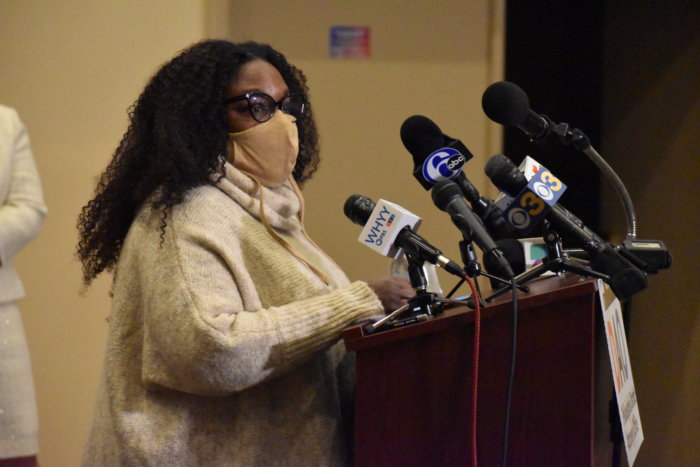
Rev. Gregory Holston, a senior advisor to District Attorney Larry Krasner, told Council members that the $100 million is a “historic proposal” to fund neighborhood organizations.
“Tax breaks do not save our children,” he said. “Trickle-down economics never worked.”
Kenney administration spokesperson Deana Gamble said studies indicate that cuts to the wage and BIRT taxes “will create jobs for Philadelphians, which is needed more than ever to drive an equitable recovery from the pandemic.”
Officials in the Mayor’s Office have also spoken about a desire to move away from the city’s reliance on wage tax revenue, which is partially dependent on people from the suburbs working in-person in Philadelphia.
Of particular debate during the budget process has been how the city should use its $1.4 billion allotment from the American Rescue Plan, a federal economic relief package.
Council’s progressive bloc — Helen Gym, Kendra Brooks and Jamie Gauthier — said Tuesday that some of the money should go toward creating a “Quality Jobs Program” and supporting small minority and immigrant-owned businesses.
“We have the ability to target funding to where it will have the greatest impact, instead of broad and incremental tax cuts that do not constitute the real tax reform we need and which disproportionately benefit large corporations and suburban commuters,” they said in a statement.
Budget deliberations continue behind the scene between Council President Darrell Clarke, Parker and other Council leaders and Kenney and his top officials.
The hope is to hash out the details of a spending plan before Thursday, so that it can begin advancing through the legislative process.
If need be, a deal could be reached as late as June 17, allowing it to be approved the following week at Council’s last session before their summer break.
Philadelphia is required to pass a balanced budget by June 30.




